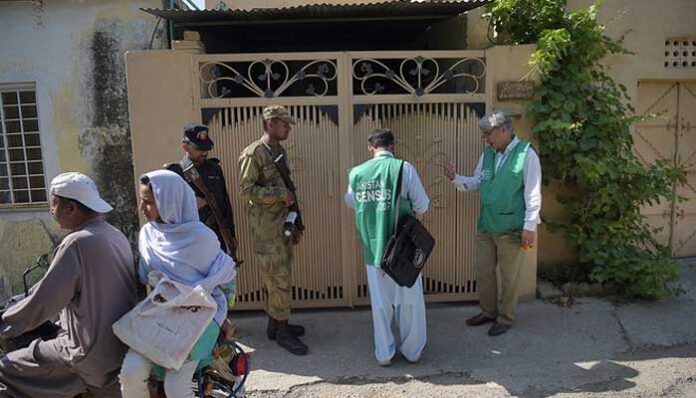ISLAMABAD: Father-of-two Muhammad Saqib excitedly types his family’s details on a laptop in his Lahore office — the first time fast-growing Pakistan is counting its population digitally.
“My infant daughter has also been counted,” the 38-year-old smiled, pressing ‘submit’ on the portal that was inaugurated last week to the beat of an Urdu song meaning ‘upon you depends your future’ at an event in Islamabad.
The optional self-registration will be followed from March 1 by a month-long collection of details by more than 120,000 enumerators using tablets and mobiles, which organisers say will make the process more accurate, transparent and credible.
From the United States to Estonia, countries around the world are digitising their population count to streamline the process, improve accuracy, and rein in cost increases. Electoral seats in parliament, as well as funding for basic services like schools and hospitals, are assigned using population density data. Previous exercises have been marred by allegations of miscount and exclusion of some groups.
Rights activists said the new digital process should be made as accessible as possible to include previously excluded or undercounted groups such as transgender people and ethnic minorities.Asim Bashir Khan, an economist and census expert for Karachi’s Institute of Business Administration, said he was shocked to see no population recorded in the previous 2017 census in some densely populated areas of Karachi. “Since people were not counted where they lived, but at their de jure position or the permanent address their identity cards showed, it resulted in an undercount where they consumed resources and an over-reporting where they didn’t,” Khan said in a phone interview.
Transgender people were counted for the first time in the last census in 2017, which identified only 10,418 transgender people out of a population of nearly 208 million — later putting their count at more than 21,000 — a gross underestimate of the size of the community, campaigners said.
“Transgender people rejected the data on them,” said Qamar Naseem, founder of Blue Veins, a transgender rights advocacy group. “People living with disabilities too were not counted properly.”
Authorities say the new digital exercise will make it easier to flag and fix anomalies.
“The digital census will ensure transparency and involvement of provinces in conduct and monitoring of the census thus paving the way for credible results,” said Planning Minister Ahsan Iqbal who is overseeing the census.
“For one month, 126,000 enumerators wearing green jackets will count every person across Pakistan, border or interior, through secured tablets,” he told the Thomson Reuters Foundation from Islamabad.
Muhammad Sarwar Gondal, a spokesperson for the Pakistan Bureau of Statistics (PBS) who is leading the digital census exercise, said its benefits include reliable data, real-time monitoring and complete coverage of remote areas. –Agencies




